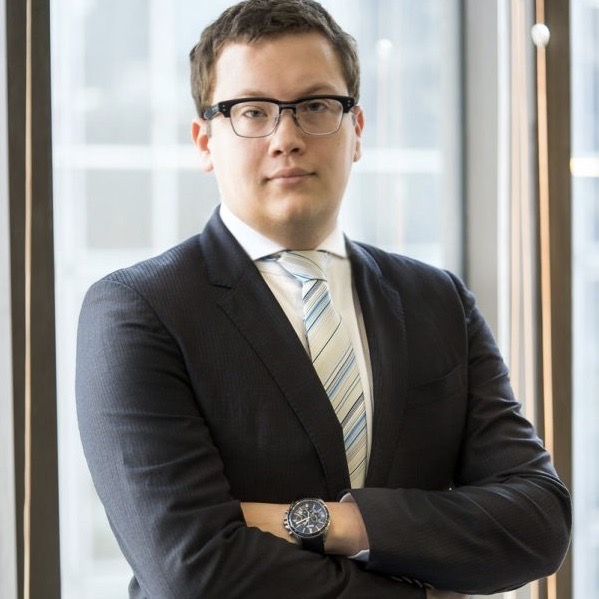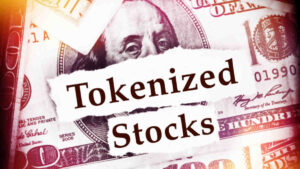DeFi will ‘drive traditional institutions into crypto’: First Digital Trust COO

Getty Images
Discussing DeFi’s benefits, regulatory action as well as where things are heading this year, First Digital Trust COO Gunnar Jaerv recently caught up with Stockhead for a broad-ranging crypto chat…
Hi Gunnar. In one of our recent “Crypto 2022” prediction articles you told us that nations who embrace DeFi (decentralised finance) will succeed. Do you still feel that way?
One hundred per cent. And I definitely believe it will be embraced.
What is it that makes you so convinced?
I think that where there is money in the industry, it will drive traditional institutions into crypto. When there is money to be made, as long as it doesn’t mess up the power balance for them, then politicians and regulators tend to enable. Especially in the capitalistic US environment. I still think DeFi is going to go down that same direction.
Why do you think DeFi should be adopted by nations and traditional finance?
Because it will simplify systems. It will allow new enterprises and new businesses to be created. DeFi will also improve things that we won’t even end up noticing – when we use our phones, when we when we transfer money, for example, it will make our lives easier.
It’s like with Skype… phone companies were monopolies and then Skype comes along and enables phone calls over the internet and now this is second nature to us. We send text messages, we pick up a phone – it doesn’t have to go through monopolistic phone networks any more. So, similarly, I think that’s the greater good that will come out of all these early-stage DeFi experiments.
‘Eventually regulators will have to do something positive’
You also mentioned to us that you think more and more crypto leaders will sit with regulators to work out a way forward this year. Do you predict positive outcomes?
I think so. I think it’s ultimately going in that direction. [Crypto exchange] Binance has recently been saying they’re pushing for regulations for the industry. I know they’re in a bit of hot water in some places, but everybody that’s sort of incumbent in the space is pushing for regulation. And I think everybody’s really expecting regulators in the US and globally to come to the table.
I think the tide is turning. And some sort of regulation is better than no regulation at all. Debates and discussions are better than no debates.
Do you think some of the people in power and in charge of regulating are afraid of crypto? Afraid of a financial power shift?
I think it’s more that historically there has been hesitation from the regulator side because maybe they just don’t know the industry so well, so they don’t want to come across as if they don’t understand it. There are some negative views. But if you look at the past six to 12 months or so, the space has really matured. A lot of fly-by-night companies have dropped off the radar.
Companies like FTX and Binance have solidified their positions on the OPC side, there have been mergers with big companies like Galaxy… it’s really getting there and building momentum, and I think eventually the regulators will have to do something positive about it.
‘There is a lot of appetite’ from traditional finance
What do you see as being a worst-case scenario possible for crypto in the US? An outright ban on transactions and mining that sends everything offshore?
I don’t think they’d ever take the approach that they’ve done in China by carrying out a total ban. I think most of the jurisdictions – US, Canada, Europe… will veer more towards discussions and consultations that will eventually turn into legislation, laws and regulations.
And I don’t ever see an exodus of crypto business from the US to offshore locations. It would kill their access to their home markets, which is what really matters.
I think what we’ve seen is the companies that have started in Southeast Asia, mainly mainland China, Taiwan, Singapore… maybe they’re looking at repositioning and moving offshore but are not quite comfortable entering the US market. Not just yet.
With First Digital Trust being headquartered in Hong Kong, what are you hearing regarding crypto from any of your conversations with the traditional finance sector in Southeast Asia?
Well, we have quite a few applicants for jobs at First Digital Trust from big banks in the region. And from those conversations, the feeling I get is that at all levels, from the top down, there is a lot of appetite. There’s a lot of curiosity about crypto from big traditional financial institutions.
We’ve seen the first signs in Australia of major traditional institutions making crypto moves, especially with the Commonwealth Bank looking to facilitate crypto investments. What might be stopping other banks/institutions taking the plunge?
Yeah, I think that’s one really positive step in Australia. If banks make it available to everybody… then they don’t have to sign up for an additional app or anything – most people have a bank account, so it should really help take it [crypto] into the mainstream, and I think it’s what banks should be striving for.
But the blocker for most of them I would say is that they are, of course, one of the most heavily regulated monoliths. In some jurisdictions, they can’t even buy five pencils without getting approval from the regulators.
I won’t name the bank, but it’s in Hong Kong where some of the people I’ve talked to said that even if you’re a top-level executive, if you post something on LinkedIn such as a crypto article or something like that, you can basically risk losing your job.
I think there is a lot of interest and appetite within the banks and financial institutions for crypto, but once again, what they can do about it is all driven by regulation.

‘DeFi has changed since its early anarchistic days’
Do you think there’s a shift away from crypto/DeFi being perceived as full of “shadowy super coders”, as US Democratic senator Elizabeth Warren infamously described it last year?
I think so, yes. DeFi has changed since its early anarchist days. If you look what’s happening around us today, it’s actually largely commercial. It’s enterprise.
All the big crypto companies, they’re business enterprises, DeFi companies. Although they might say they’re decentralised, at the end of the day they’re enterprises – looks at Celsius, look at any of the DeFi platforms. They’re actually businesses and operate companies and corporates. And what happens is they’re using blockchain and the technology as a tool that generates revenue, but they’re approaching it a new way.
I think because it’s so commercialised already, the “let’s screw over Big Brother” kind of mentality isn’t quite as prevalent any more.
So, yes I do see a perception shift, but maybe over two or three years. It’s going to be like, okay, maybe crypto is not so bad. Yes, it’s challenging the traditional systems, but once we get that critical mass over the early adoption curve, the mindset is going to change and all of those traditional companies are going to be on board.
The downside is there will be less opportunities with less volatility. But I think it’s still early days right now.
Right, so in the meantime, do you still see crypto as a market with potentially big opportunities for investors, perhaps partly due to the crazy volatility?
I think so. We’re nowhere near the sort of the stable crypto markets that would be comparable to stock markets or any other commodities markets. When we’re talking about trading for example, we’re far away from that.
The recent dip has been a very good example of that, where we were going through a bull run and now people are starting to panic a little bit already.
For me, I’m not worried at all about that, even though it’s still the case where we will see these sharp drops, and increases, of 20 per cent and more.
I think the manipulative, shady pump-and-dumps will continue to fade away, though, as the market continues to mature. They’re already fading.
It’s still a very volatile market and I think that will be the case for the next few years. So there’s still a long way to go, but we finally have something now that’s starting to resemble a proper industry in which you can really build a business and have a good, basic level of trust when working with big players.
‘I think it will get back into a bullish trend this year’
Now for a bit of a YouTube influencer-style question… got any price predictions on Bitcoin or anything else for this year?
Ha, so the last time I made one, and I think it was with you guys, it was a $70,000 [USD] Bitcoin by the end of 2021. Okay, that didn’t happen!
So obviously these calls are really hit and miss and I’m not a professional trader. But… I will just say that overall I think that it [the crypto market] will get back into the bullish trend this year.
Our company… our business doesn’t depend on the price side to be honest. I actually don’t follow that side of things too closely, which makes it easier for my inner peace!
Is there anything that you think needs to happen specifically to reignite the bull run?
I think it depends on what the influx of new money into the industry is going to be in the coming months. Because this industry can only grow with the influx of new money, whether from retail or institutional investors.
I think the main thing to keep looking out for is the big investments, either from institutional investors deploying money into the various crypto sectors, or corporates – more listed companies like we saw with Tesla last year. Those things are huge confidence boosters for the industry as a whole.
That’s what I’ll be looking out for – headlines that show traditional companies are deploying part of their balance sheet into blockchain products. And also to see if the market caps of stablecoins are increasing. I think that’s an indicator of more retail money getting in.
Gunnar Jaerv is the co-founder and COO of First Digital Trust (FDT) – a leading Hong Kong-based custodian that uniquely services both traditional and digital assets.
FDT is the pioneer of Asia’s first instant-settlement network and is regularly consulted by large-scale institutions on digital assets.
Stockhead has not provided, endorsed or otherwise assumed responsibility for any financial product advice contained in this interview.
At the time of writing, the author holds several crypto assets, including Bitcoin and Ethereum.
Related Topics
UNLOCK INSIGHTS
Discover the untold stories of emerging ASX stocks.
Daily news and expert analysis, it's free to subscribe.
By proceeding, you confirm you understand that we handle personal information in accordance with our Privacy Policy.








